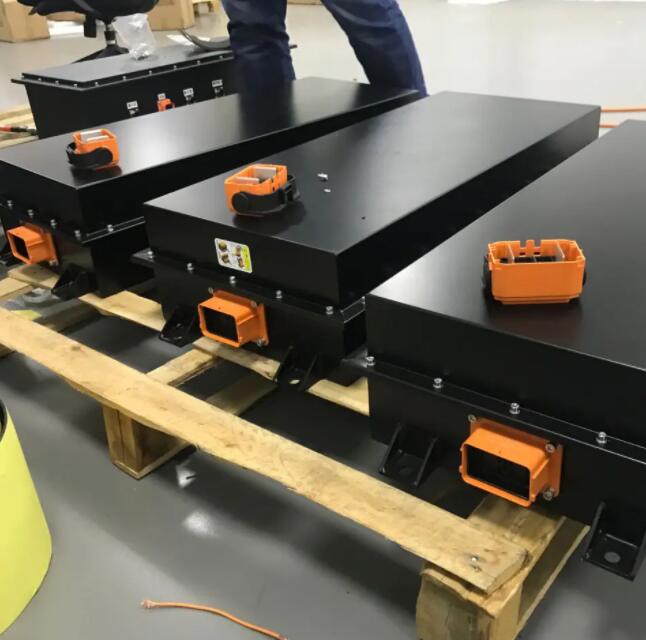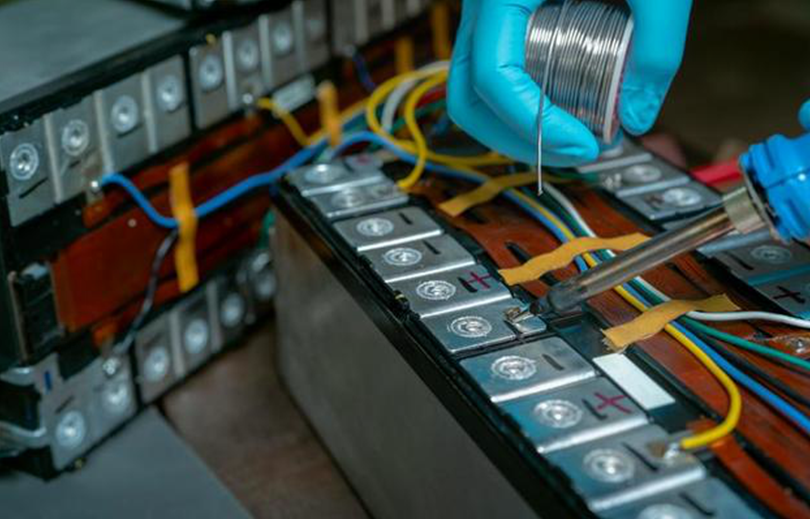electric vehicles Lithium battery suppliers
electric vehicles Lithium battery
Electric vehicles (EVs) typically use lithium-ion batteries as their primary source of energy storage. Lithium-ion batteries are a type of rechargeable battery that have become the preferred choice for EVs due to their high energy density, long lifespan, and relatively lightweight nature compared to other battery technologies.
Here are some key points about lithium batteries in electric vehicles:
Composition: Lithium-ion batteries used in EVs consist of multiple cells, each containing a positive electrode (cathode), negative electrode (anode), and an electrolyte solution. The cathode typically contains lithium compounds, such as lithium cobalt oxide (LiCoO2), lithium iron phosphate (LiFePO4), or lithium nickel manganese cobalt oxide (LiNiMnCoO2). The anode is usually made of graphite.
Energy Density: Lithium-ion batteries have a high energy density, meaning they can store a significant amount of energy in a relatively small and lightweight package. This allows electric vehicles to have longer driving ranges and higher performance capabilities.
Charging and Discharging: Lithium-ion batteries can be charged and discharged efficiently, making them suitable for electric vehicles. They can store energy from the electric grid during charging and deliver it to power the vehicle’s electric motor during discharging.
Range and Performance: The energy density of lithium-ion batteries enables EVs to achieve longer driving ranges compared to other battery technologies. The performance of EVs, such as acceleration and top speed, is also influenced by the power output and efficiency of the battery.
Lifespan: The lifespan of lithium-ion batteries is typically measured in charge cycles, which refers to the number of times a battery can be charged and discharged before its capacity starts to degrade significantly. The lifespan can vary depending on factors such as battery chemistry, usage patterns, temperature conditions, and maintenance. Manufacturers aim to develop batteries with longer lifespans to meet the demands of EV owners.
Safety Considerations: While lithium-ion batteries are generally safe, there have been rare instances of thermal runaway or battery fires. Battery management systems in EVs monitor and control factors like temperature, voltage, and current to ensure safe operation and prevent overcharging or overheating.
Recycling and Sustainability: The recycling of lithium-ion batteries is important to recover valuable materials and reduce environmental impact. Battery manufacturers and researchers are continuously working on improving recycling processes to maximize resource recovery. Additionally, efforts are being made to develop sustainable and environmentally friendly methods for battery production.

Why Choose Lithium Battery For electric vehicles?
High Energy Density
Lithium-ion batteries have a high energy density, which means they can store a large amount of energy in a relatively small and lightweight package. This allows EVs to have longer driving ranges and higher performance capabilities.
Lightweight
Lithium-ion batteries are lightweight compared to other battery technologies, such as lead-acid batteries. This reduces the overall weight of the vehicle, improving its energy efficiency and handling.
Fast Charging
Lithium-ion batteries can be charged at a faster rate compared to other battery technologies. This means EVs can be recharged more quickly, providing greater convenience to drivers.
능률
Lithium-ion batteries have a high charge and discharge efficiency, meaning they can convert a large percentage of stored energy into actual power for the electric motor. This translates to better overall energy efficiency and longer driving ranges.
Longer Lifespan
Lithium-ion batteries generally have a longer lifespan compared to other types of batteries used in EVs. They can withstand a higher number of charge cycles before their capacity starts to degrade significantly. This results in reduced maintenance and replacement costs for EV owners.
Environmental Impact
Compared to internal combustion engine vehicles, EVs powered by lithium-ion batteries produce zero tailpipe emissions, contributing to improved air quality and reduced greenhouse gas emissions. Furthermore, lithium-ion batteries can be recycled, allowing for the recovery of valuable materials and reducing environmental impact.
Technological Advancements
Lithium-ion battery technology has been extensively researched and developed over the years, leading to continuous improvements in performance, safety, and cost. Ongoing advancements and investments in lithium-ion batteries for EVs contribute to the overall growth and development of the electric vehicle industry.
While there are other types of batteries available for electric vehicles, such as nickel-metal hydride (NiMH) batteries, lithium-ion batteries currently offer the best combination of energy density, weight, charging speed, efficiency, and overall performance. As a result, they have become the dominant choice for powering electric vehicles and are expected to continue playing a significant role in the future of sustainable transportation.

-
 For years, lead-acid batteries have been the go-to for energy storage solutions due to their affordability and availability. However, as technology continues to advance, lithium-ion batteries like the 100Ah Lithium Battery Lifepo4 are revolutionizing the energy storage market. The 100Ah Lithium Battery Lifepo4 is a type of lithium-ion battery that is commonly used for energy storage in residential and...더 읽어보세요
For years, lead-acid batteries have been the go-to for energy storage solutions due to their affordability and availability. However, as technology continues to advance, lithium-ion batteries like the 100Ah Lithium Battery Lifepo4 are revolutionizing the energy storage market. The 100Ah Lithium Battery Lifepo4 is a type of lithium-ion battery that is commonly used for energy storage in residential and...더 읽어보세요 -
 LiFePO4 batteries, also known as lithium iron phosphate batteries, have gained popularity for their high energy density, long lifespan, and low environmental impact. However, like any technology, LiFePO4 batteries have their own set of problems that limit their wider adoption. In this essay, we will explore some of the main issues with LiFePO4 batteries. One of the most significant...더 읽어보세요
LiFePO4 batteries, also known as lithium iron phosphate batteries, have gained popularity for their high energy density, long lifespan, and low environmental impact. However, like any technology, LiFePO4 batteries have their own set of problems that limit their wider adoption. In this essay, we will explore some of the main issues with LiFePO4 batteries. One of the most significant...더 읽어보세요 -
 오늘날 빠르게 변화하는 디지털 세상에서는 생산성이 핵심입니다. 비즈니스 전문가부터 학생까지 빠르고 정확하게 작업을 완료하려면 안정적이고 효율적인 PC 마우스를 갖는 것이 필수적입니다. 하지만 끊임없이 새 배터리가 필요한 마우스보다 더 답답한 것은 없습니다. 이것이 바로 PC 마우스 리튬 배터리가 작동하는 곳입니다. 이는 다음과 같이 생산성을 향상시키는 오래 지속되는 전원 솔루션입니다.더 읽어보세요
오늘날 빠르게 변화하는 디지털 세상에서는 생산성이 핵심입니다. 비즈니스 전문가부터 학생까지 빠르고 정확하게 작업을 완료하려면 안정적이고 효율적인 PC 마우스를 갖는 것이 필수적입니다. 하지만 끊임없이 새 배터리가 필요한 마우스보다 더 답답한 것은 없습니다. 이것이 바로 PC 마우스 리튬 배터리가 작동하는 곳입니다. 이는 다음과 같이 생산성을 향상시키는 오래 지속되는 전원 솔루션입니다.더 읽어보세요 -
 In recent years, the demand for reliable and efficient energy storage solutions has been on the rise. As the world shifts towards renewable energy sources, such as solar and wind power, the need for high-performance batteries becomes crucial. One such solution that has gained significant attention is the 12V 100Ah LiFePO4 battery. LiFePO4, or lithium iron phosphate, batteries are...더 읽어보세요
In recent years, the demand for reliable and efficient energy storage solutions has been on the rise. As the world shifts towards renewable energy sources, such as solar and wind power, the need for high-performance batteries becomes crucial. One such solution that has gained significant attention is the 12V 100Ah LiFePO4 battery. LiFePO4, or lithium iron phosphate, batteries are...더 읽어보세요 -
 Introduction: The starter battery is an essential component of any vehicle. It powers the starter motor, which is responsible for turning over the engine. Without a functioning battery, your vehicle won\'t start. Over time, batteries can lose their charge or become damaged, which can lead to failure. That's why it's important to keep track of your battery's age and replace...더 읽어보세요
Introduction: The starter battery is an essential component of any vehicle. It powers the starter motor, which is responsible for turning over the engine. Without a functioning battery, your vehicle won\'t start. Over time, batteries can lose their charge or become damaged, which can lead to failure. That's why it's important to keep track of your battery's age and replace...더 읽어보세요 -
 에너지 저장 기술이 계속 발전함에 따라 점점 더 많은 사람들이 에너지 수요를 위해 인산철리튬(LifePO4) 배터리를 선택하고 있습니다. 이 배터리는 높은 에너지 밀도, 긴 수명, 낮은 자체 방전율로 잘 알려져 있습니다. 시중에는 다양한 옵션이 있으므로 어느 것이 귀하에게 적합한지 아는 것이 어려울 수 있습니다.더 읽어보세요
에너지 저장 기술이 계속 발전함에 따라 점점 더 많은 사람들이 에너지 수요를 위해 인산철리튬(LifePO4) 배터리를 선택하고 있습니다. 이 배터리는 높은 에너지 밀도, 긴 수명, 낮은 자체 방전율로 잘 알려져 있습니다. 시중에는 다양한 옵션이 있으므로 어느 것이 귀하에게 적합한지 아는 것이 어려울 수 있습니다.더 읽어보세요 -
 전기스쿠터는 최근 편리하고 친환경적인 교통수단으로 인기가 높아지고 있습니다. 그러나 전기 스쿠터의 주요 제한 사항 중 하나는 배터리 수명입니다. 많은 라이더는 여행 중에 전력이 부족해지지 않도록 끊임없이 충전소를 찾거나 여분의 배터리를 휴대하고 있습니다. 하지만 만약 있었다면...더 읽어보세요
전기스쿠터는 최근 편리하고 친환경적인 교통수단으로 인기가 높아지고 있습니다. 그러나 전기 스쿠터의 주요 제한 사항 중 하나는 배터리 수명입니다. 많은 라이더는 여행 중에 전력이 부족해지지 않도록 끊임없이 충전소를 찾거나 여분의 배터리를 휴대하고 있습니다. 하지만 만약 있었다면...더 읽어보세요

